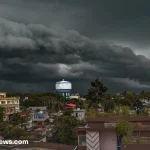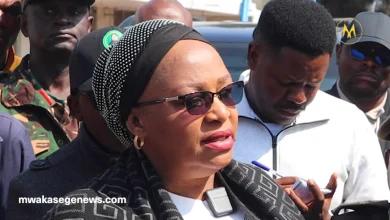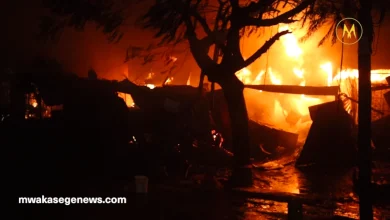5.2 Magnitude Earthquake Strikes Semnan, Iran Amid Rising Regional Tensions
Tremors Felt Near Strategic Sites in Central Iran as Tensions With Israel Escalate

A 5.2 magnitude earthquake struck near Semnan, a northern city in Iran, early Friday morning. The tremor, though not catastrophic, triggered concern due to its location—near a space and missile development complex.
This seismic activity comes at a critical time, as tensions between Iran and Israel continue to rise. The region, already geopolitically sensitive, now faces additional scrutiny due to natural and political unrest.
What Happened in Semnan?
Its depth was measured at 9 km, making it a shallow quake, which tends to cause more surface shaking.
Why This Earthquake Matters
While natural disasters are not rare in Iran, this quake’s timing and location intensify regional anxieties.
Geopolitical tensions between Iran and Israel have escalated in recent months, with both nations involved in proxy conflicts and cyber operations. The tremor, even if unrelated to these issues, adds psychological weight to the unrest.
The Science Behind It
This earthquake is part of a larger tectonic pattern affecting the Alborz mountain range, which spans northern Iran.
Shallow quakes like this one tend to be more noticeable, even if they’re not especially powerful. At 5.2 magnitude, the tremor is classified as moderate but can still alarm residents, especially near populated areas.
Public and Government Response
Iranian emergency services responded promptly by deploying monitoring teams and issuing public safety messages.
Despite the concern, life in Semnan and surrounding regions has largely returned to normal. Government officials continue to assess any potential structural impacts on key infrastructure, including military and aerospace facilities.
Regional Context: Tensions With Israel
The earthquake occurred just as diplomatic and military tensions with Israel were at a peak. Although the quake is a natural event, the coincidence of timing has fueled speculation and anxiety on social media and regional news outlets.
With Semnan’s strategic importance, any disruption—even seismic—can raise questions about vulnerability, preparedness, and intent, particularly in a climate of mutual distrust between the two nations.
Historical Seismic Activity in Iran
Major quakes in Bam (2003) and Tabas (1978) resulted in thousands of deaths and significant destruction. Thankfully, the Semnan quake was much milder.
These events are reminders of the importance of earthquake-resistant infrastructure and quick emergency response systems in high-risk areas like Iran.
Looking Ahead: Safety and Preparedness
While no major damage has been reported, the quake is a wake-up call for continued vigilance. Officials stress the importance of
- Emergency drills in schools and offices
- Updated structural assessments of older buildings
- Improved early warning systems
- Public education campaigns on disaster preparedness
Given Iran’s seismic history, preparedness remains a national priority.
Final Thought
ALSO READ: Philadelphia Weather Warning: Storms Strike Thursday, Weekend Heatwave to Follow
Although the Semnan earthquake did not cause physical harm, its implications stretch beyond geology. It underscores the fragility of regions where natural forces intersect with geopolitical volatility.
Staying informed, remaining prepared, and avoiding panic are crucial in such times. As the situation develops, both naturally and politically, the world watches closely.
FAQs
The earthquake occurred southwest of Semnan, in central Iran, near strategic military and aerospace sites.
It had a magnitude of 5.2 and was relatively shallow at a depth of 9 km.
As of the latest reports, no casualties or major damage have been confirmed.








